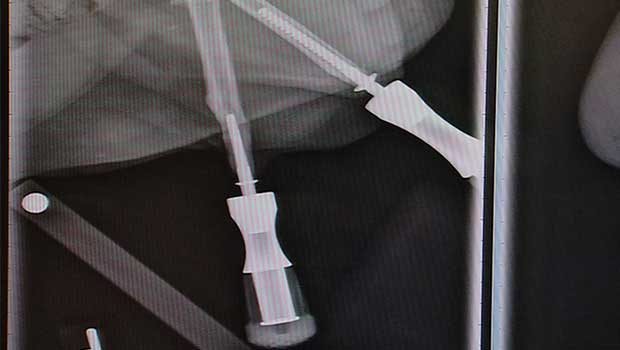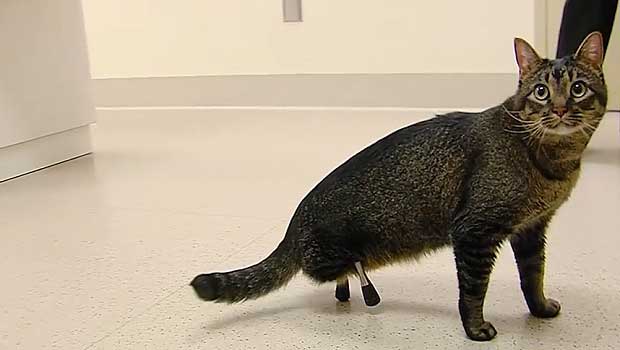Vincent the Cat Receives Titanium Legs. Walks for Very First Time
In a story featured in the Daily Mail, Vincent the cat has been given a new lease on life. Vincent is a three year old domestic cat that was found at a camp site, missing both of his back legs. With the help of his adopted family and Iowa State University, he is now able to get around with a new pair. Vincent was fitted with titanium back legs that allow him to wander about, almost like the average four legged feline.
I anticipate that he’ll be jumping and doing really normal cat things very soon,” said Dr. Mary Sarah Bergh, the veterinary orthopaedic surgeon who attached Vincent’s prosthetic legs and has overseen his rehabilitation.
There are about 25 animals in the wold that have similar prosthetics, Bergh estimates, which makes it hard to know for sure how the procedure would go and how well Vincent would recover. His adoptive family has to take special care of his implants like applying antibiotic spray to his legs twice a day to prevent infections. But altogether Vincent has shown great progress since the procedure.

BioMedtrix designed the prosthetics, which were made to be inserted into the femur bones of Vincent’s legs and pass through his skin. As of right now the shafts are exposed, putting Vincent at risk for infection. The surgery took place in February 2014 and he was taking his first steps just days after the procedure. A second procedure occurred a year later, and he’s had other treatments to slowly lengthen the prosthetics, which will eventually be as long as the average house cat’s hind legs.
Bergh said the experience with Vincent may help her and other veterinary orthopedic surgeons expand and improve the use of implants for animals in the future. She called this kind of procedure an ‘emerging field’ that’s rare in veterinary medicine, but Vincent’s case may help answer some questions and make implants a more practical solution.
Share this:




